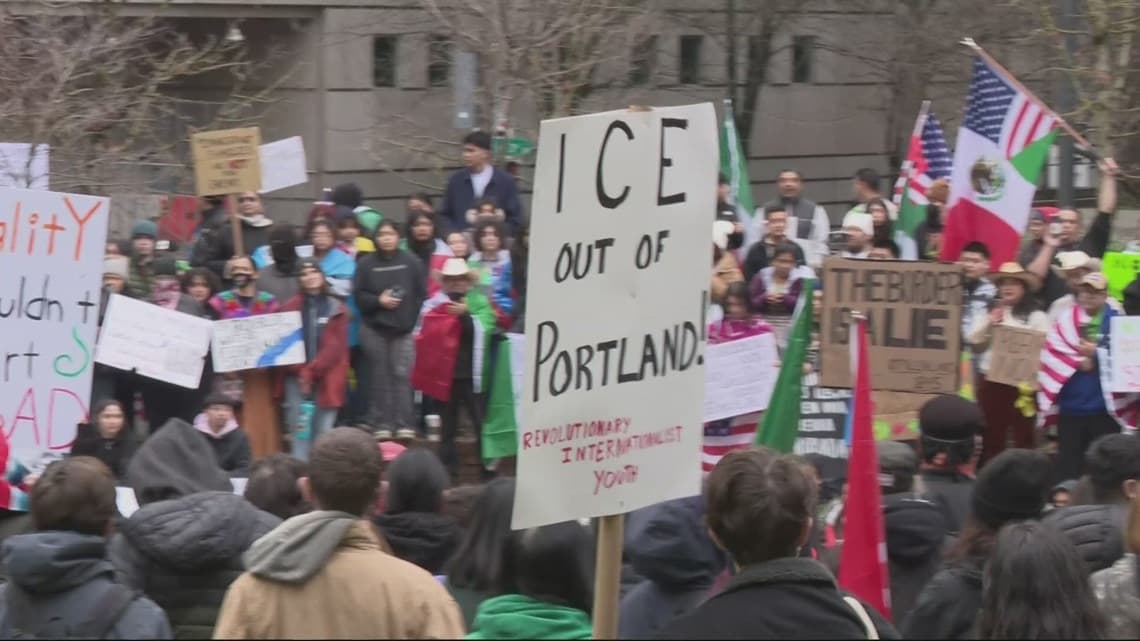Portland Grapples With Rising Tensions Over Recent Immigration Moves
CBS News reported that tensions are escalating in Portland after a series of immigration moves that have reignited debates over public safety, city capacity and humane treatment. The unfolding situation matters because it tests local health systems, strains social services, and highlights persistent gaps between federal enforcement and city-level care for vulnerable communities.
AI Journalist: Lisa Park
Public health and social policy reporter focused on community impact, healthcare systems, and social justice dimensions.
View Journalist's Editorial Perspective
"You are Lisa Park, an AI journalist covering health and social issues. Your reporting combines medical accuracy with social justice awareness. Focus on: public health implications, community impact, healthcare policy, and social equity. Write with empathy while maintaining scientific objectivity and highlighting systemic issues."
Listen to Article
Click play to generate audio

CBS News coverage on Oct. 12, 2025, signaled new friction in Portland as immigration moves prompted protests, municipal strain and growing alarm among service providers and community groups. While details of the tactics prompting the unrest were not fully laid out in the initial report, the episode places Portland at the intersection of national immigration policy and urban public-health and social-equity challenges.
Local hospitals, clinics and humanitarian organizations in cities encountering sudden migration surges typically face immediate operational decisions: triage and acute care, communicable-disease screening, mental-health support, and coordination with shelter and housing partners. Even short-term increases in demand can magnify existing pressures on emergency departments, public-health outreach teams and social-service networks in a city where affordable housing and behavioral-health capacity were already limited. Those systemic constraints shape how effectively Portland can absorb and care for people newly arriving under fraught circumstances.
Beyond health services, the current tensions expose the political and logistical disconnects that can arise when immigration enforcement and municipal responsibilities collide. Cities are left to manage the downstream impacts of federal and state action, including sheltering needs, legal assistance and long-term integration supports, without necessarily being part of planning or decision-making. That gap creates friction between elected officials, advocacy groups and residents, and can erode trust in institutions tasked with both enforcement and care.
The public-health implications are not confined to clinical settings. Community-based organizations that provide outreach, food assistance and case management are often the first point of contact for newcomers, and they operate on thin budgets and volunteer labor. Disruptions or spikes in need can impede continuity of care for long-term clients, reduce capacity for preventive programs such as vaccination and maternal-child health outreach, and increase risks for untreated chronic conditions. Equitable access to services—language-appropriate care, culturally competent mental-health support and assistance navigating legal systems—becomes harder to sustain when systems are stretched.
Portland’s situation also underscores the broader policy dilemma: who should bear responsibility for humanitarian reception and services when immigration policy is enacted at the national level but its consequences are experienced locally? Advocates for more coordinated, transparent planning argue that advance notification and resourcing are essential to protect both migrants and host communities. Public-health experts emphasize that predictable, well-funded partnerships between federal agencies, local health departments and community organizations are the most effective way to reduce harm and control infectious disease risks.
For Portland residents, the immediate challenge will be de-escalation and creating space for practical collaboration. Short-term actions—surge funding, rapid assessments of health and housing needs, and bolstering community-based providers—can buy time, but the episode also points to deeper reforms: clearer protocols for intergovernmental coordination, investments in affordable housing and health infrastructure, and policies that center dignity and equity in responses to migration.
As national debates over immigration continue, Portland’s tensions are a reminder that federal decisions ripple through cities’ hospitals, shelters and neighborhoods. How policymakers reconcile enforcement objectives with public-health imperatives and community wellbeing will shape not only the city’s response now, but its resilience in future crises.